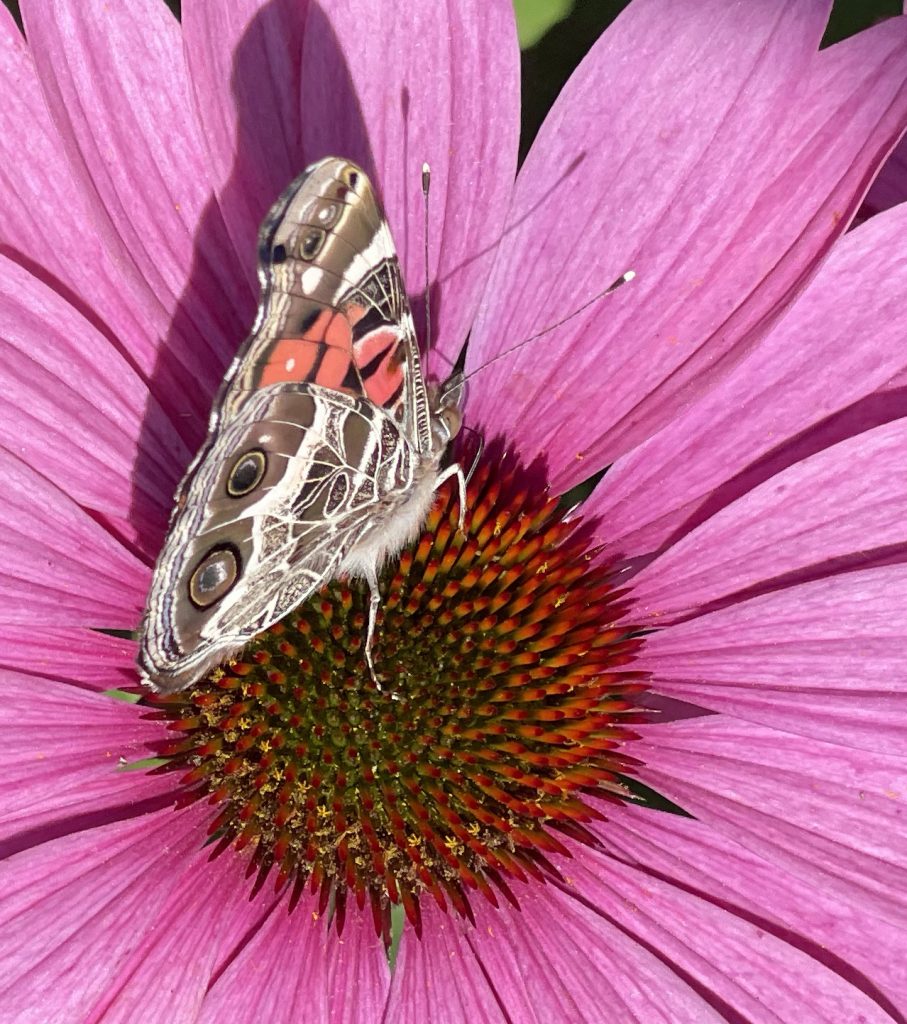By Marnie Crowell
We live on the eastern edge of the time zone, on an island on the coast of Maine where our lobstermen routinely start their working day well before dawn. When the first National Moth Week came along with folks from all over sharing their moth sheet and black lights, we just could not bring ourselves to offer an event in the middle of the already too-short night. So we came up with the idea of inviting folks to a Moth Breakfast. Some of you may have read about this in previous National Moth Week years.
I made blueberry muffins and invited one and all to bring their coffee and sit in our lawn chairs and admire the moths which were still dozing on our sheets. We had a regular crowd, young and old, summer visitors and island residents alike. A pair of young brothers from New York City visiting their grandparents here were regular visitors for years. Had it not been for covid restrictions I am sure they would have shown up at our house as soon after dawn as they could convince the grownups to bring them.
Both boys listened quietly as we told about the wonders of the moth world. They posed for their proud grandparents with moths sitting quietly on their fingers and of course that favorite trick: moths on noses! The boys were usually reluctant to leave while there were still moths to be seen on the sheet.
The younger brother, perhaps 10 years old now – but not by any means the youngest of our many National Moth Week breakfasters – was recently attending an online session given by a zoo veterinarian. His grandmother who is a friend of mine recently reported that the vet said, “Now here is a butterfly bandage that we use instead of stitches for closing some wounds on the animals. It is obviously named for the shape.” The boy then sent in a comment, “Excuse me, I think you are mistaken. Butterflies hold their wings over their backs. It is moths that rest with their wings spread in that shape.”
What a delight to be reminded that all over our country, those grinning and maybe silent youngsters at the Moth Week events are taking in far more information than we adults probably give them credit for. Those young people are indeed the future. Thanks to all those who participate. Helping our world to appreciate moths is worth every bit of energy put into the week long celebration.
